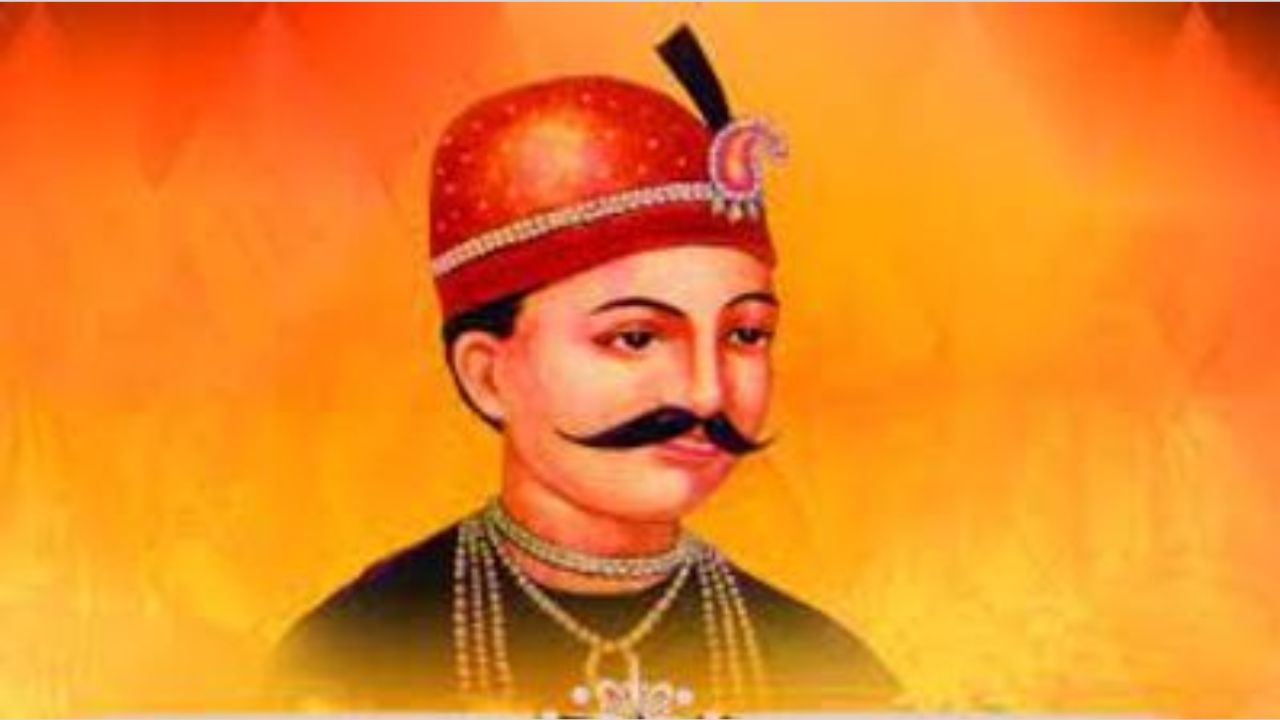Tatya Tope Biography: On the 158th anniversary of his death. Ramachandra Pandurang Tope, also known as Tantia Tope, Tatya Tope, and Tantia Topi, was one of the most distinguished Indian freedom fighters and a general during the 1857 Rebellion. Even though he lacked formal military training, he was among the most effective combatants.
Tatya Tope’s Early Life
Tatya Tope, also known as Tantia Tope, was born in 1814 in Yeola, Nashik district, Maharashtra, India as Ramachandra Pandurang Tope. His father was a prominent nobleman at the court of Maratha Peshwa Baji Rao II.
Tatya Tope received his early education and martial arts training at home. He spoke multiple languages fluently, including Marathi, Hindi, and Urdu.
Tatya Tope entered the army of the Peshwa as a young man and rose rapidly through the ranks due to his valour and tactical expertise. He was designated as the artillery commander and played a pivotal role in a number of battles.
Tatya Tope, dispatched in 1851 to aid Rani Lakshmi Bai of Jhansi in her struggle against the British. He became one of her closest advisors and was instrumental in the 1857 Indian Rebellion. Tatya Tope continued to fight against the British in various battles after the fall of Jhansi but was ultimately captured and executed in 1859.
Tatya Tope Success
He was a pivotal figure in the 1857 Indian Rebellion, also known as the Indian Mutiny or the First War of Indian Independence. He played an essential role in numerous battles and was one of the most important rebel leaders.
Among Tatya Tope’s notable victories during the rebellion are the following:
- Tatya Tope commanded a successful siege of the British-held city of Sagar in March of 1858. He conquered the city and seized control of the armaments and treasury.
- Tatya Tope and his forces defeated the British in the decisive Battle of Chhindwara in April 1858. The British suffered severe losses, and Colonel Holmes, their commander, was killed.
- In May 1858, Tatya Tope commanded a successful siege against the British garrison at Shivpuri. Tatya Tope was able to capture a vast quantity of ammunition and supplies after the British were compelled to surrender.
- Tatya Tope and his forces defeated a British army commanded by General Rose in the Battle of Betwa in June 1858. General Rose was wounded, while the British sustained heavy losses.
Tatya Tope Personal Life
Who is Tatya Tope? What was his private life like? The majority of those written in English are accounts of the Indian Rebellion of 1857. Tantia Tope got the title Tope, which originates from the Hindi word Tope, which means cannon or artillery. According to an official statement, Tantia Tope’s father was Panduranga, a resident of Jola Pargannah, Patoda Zilla Nagar in modern-day Maharashtra. Tope was born a Maratha Vashista Brahman. One government document referred to him as the minister of Baroda, while another referred to him as Nana Sahib. At his trial, a witness described Tantia Tope as “a man of average height with a wheat complexion who always wore a white chukri-dar turban.”
Tragedy and Death
During one of his escapes, he met Man Singh, King of Narwar, and soon became his friend. The British were able to persuade Man Singh, who had been in conflict with the Maharaja of Gwalior, to hand over Tope in exchange for protection from the Maharaja.
Man Singh, one of Tope’s closest associates, ultimately betrayed him, and General Napier’s British Indian troops defeated him. On April 7, 1859, the British Army captured him. After his arrest, Tope brazenly acknowledged his actions and claimed he had no regrets because everything he did was for the mother. On April 18, 1859, executed in Shivpuri by hanging.
Albert Einstein Biography: Birthday, Early Life, Career, Awards, Quotes, Death
Facts about Tatya Tope
- Tantia Tope was born in 1814 in Nashik, Maharashtra, to Pandurang Rao Tope and his wife Rukhmabai.
- Tantia Tope was a close companion and the right hand of Peshwa’s adopted son, Nana Sahib.
- Tantia Tope defeated the Indian troops of the East India Company at Kanpur in May 1857.
- He was the Indian commander during the 1857 Rebellion.
- British were frightened by his guerilla tactics.
- He compelled General Windham to retreat from Gwalior.
- He collaborated with Jhansi’s Rani Lakshmi Bai to seize Gwalior.
- Rani Lakshmi Bai of Jhansi was a childhood companion of Tantia. When she was slain with a sword, he cremated her body and performed the funeral rites.
- During his lifetime, he engaged in 150 conflicts against the British and destroyed 10,000 British soldiers.
- Man Singh, a former Gwalior army Sardar, betrayed Tatia Tope’s faith by succumbing to the ‘Jagir’ and the Englishmen’s proposals.
- Sir Colin Campbell (later Baron Clyde) defeated Tantia Tope on December 6, 1857.
- He was executed on April 18, 1859, in the camp of General Meade at Shivpuri.



